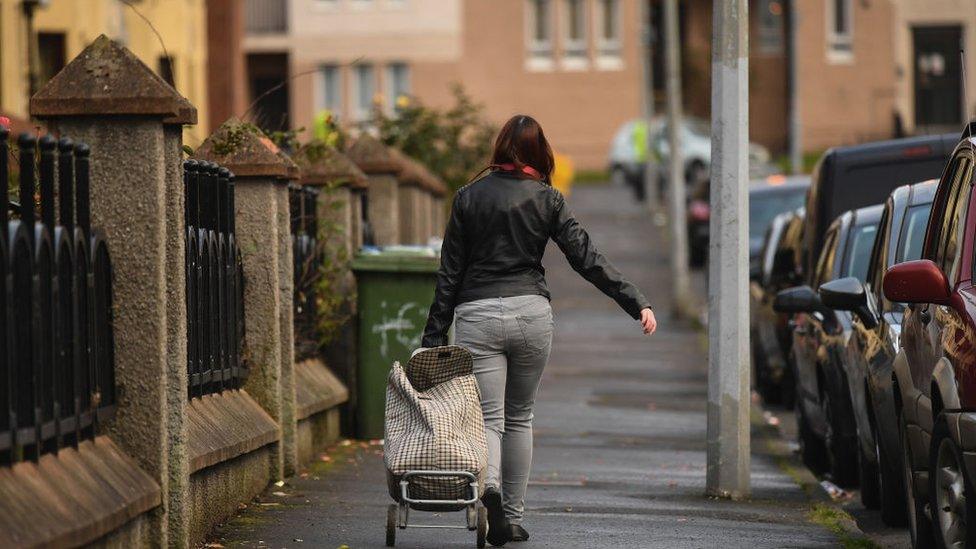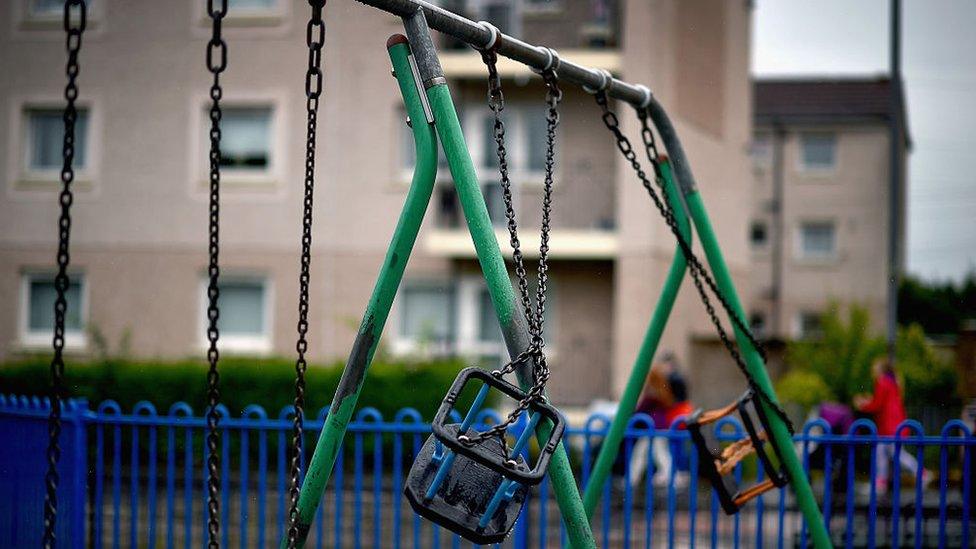Poverty fight 'needs deeds and not words'
- Published
- comments

The commission says economic growth should benefit every area of society
Deeds and not words are required from the Scottish government to deliver an economy that helps tackle poverty, one of its key advisory groups has said.
The Poverty and Inequality Commission warned that ministers must be clearer about how they plan to deliver inclusive economic growth.
The Scottish government made inclusive growth a key goal four years ago.
Public finance minister Kate Forbes said it was focused on "building a fairer and more prosperous country."
The inclusive growth strategy aims to boost the economy in a way that cuts poverty and inequality.
The move was hailed as a shift away from relying on measures like redistribution to fix problems after they happen.
But a report by the independent commission, external insists "very little has changed" in how this new agenda is delivered.
It has warned of a lack of clarity, and of national strategy not being translated down to a local level.
Transport plans
The commission wants key changes to ensure "a growth agenda that genuinely benefits all".
They include:
Being clear about what inclusive growth is, what is different about it and how it is measured
Embedding inclusive growth into new flagship policy programmes like City Deals and the Scottish National Investment Bank
Ensuring inclusive growth penetrates existing economic policies and strategies - such as sector growth, trade, investment and transport plans.
The commission's chairman, Douglas Hamilton, said growth that benefits all "is essential at a time when we face a rising tide of in-work poverty".

He added: "We welcome the Scottish government's adoption of inclusive growth, but the commission wanted to understand whether it has marked a fundamental shift in the way policies are prioritised, made and implemented.
"What we found is that, despite a high level of commitment to make this new economic agenda work, very little has changed.
"There is still a lack of clarity around what inclusive growth means, making it all things to all people.
"As a result, it appears to be more of a concept than an approach that results in real change in people's lives.
"National strategies aren't being easily understood or translated at a local level, further stifling the adoption of inclusive approaches to growth.
"We see a lot of good will towards this agenda, now it needs to be translated into action."
Greater prosperity
Public finance minister Kate Forbes said the government agreed with the commission's view that Scotland's economy needs to deliver greater prosperity on a more equal basis.
She added: "That's why, despite a £2bn reduction in Scotland's block grant, we are focused on our objective of building a fairer and more prosperous country and eradicating child poverty.
"Our £1.7bn commitment to city region and growth deal investments will deliver long-term benefits to our villages, towns and cities, bringing sustained economic growth and positive social impact to our communities.
"Meanwhile, our Tackling Child Poverty Delivery Plan sets out the first steps required to achieve our ambitions to end child poverty, including action to make Scotland a Fair Work nation by 2025, and new support to enter work through Fair Start Scotland. "